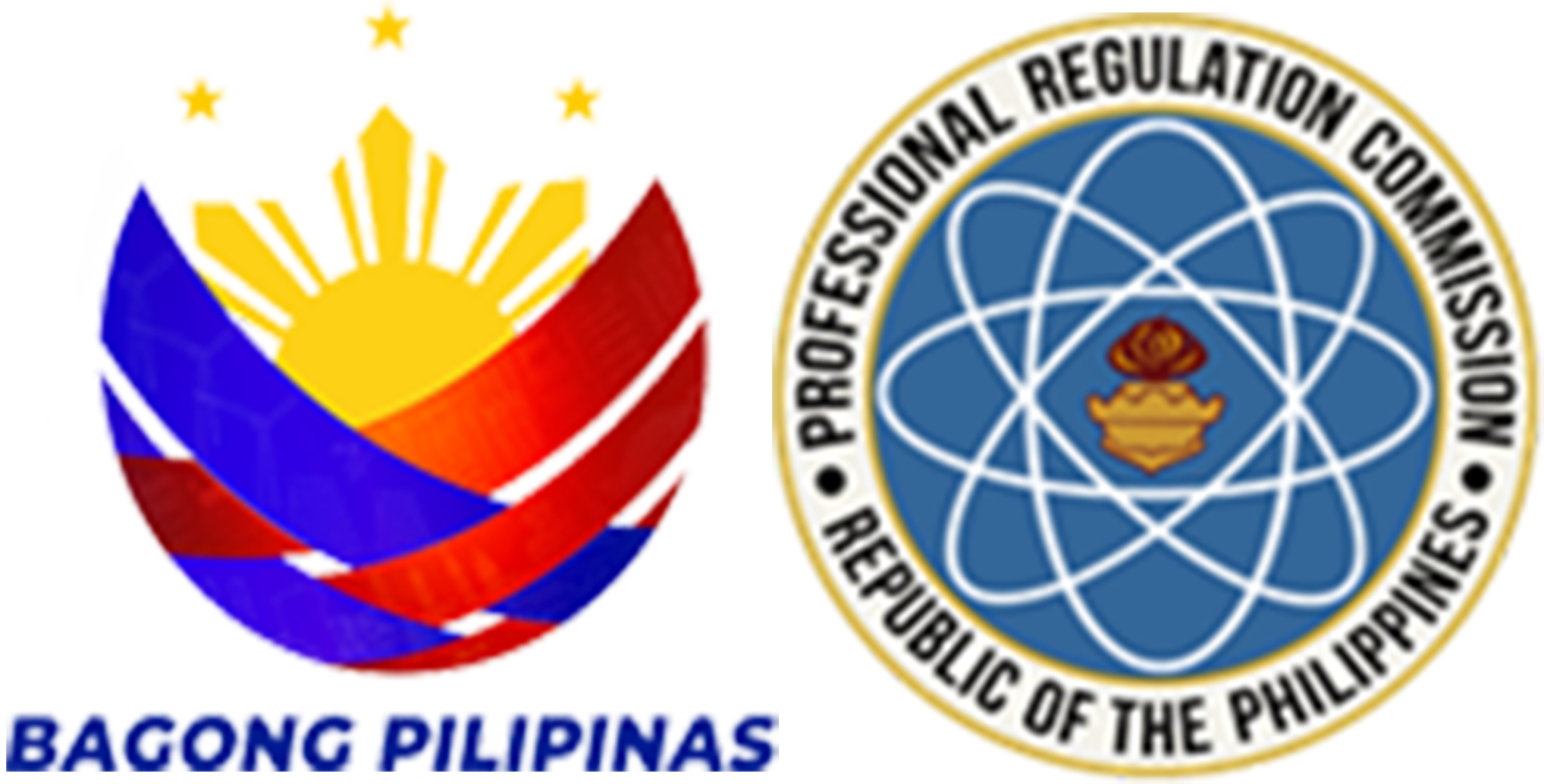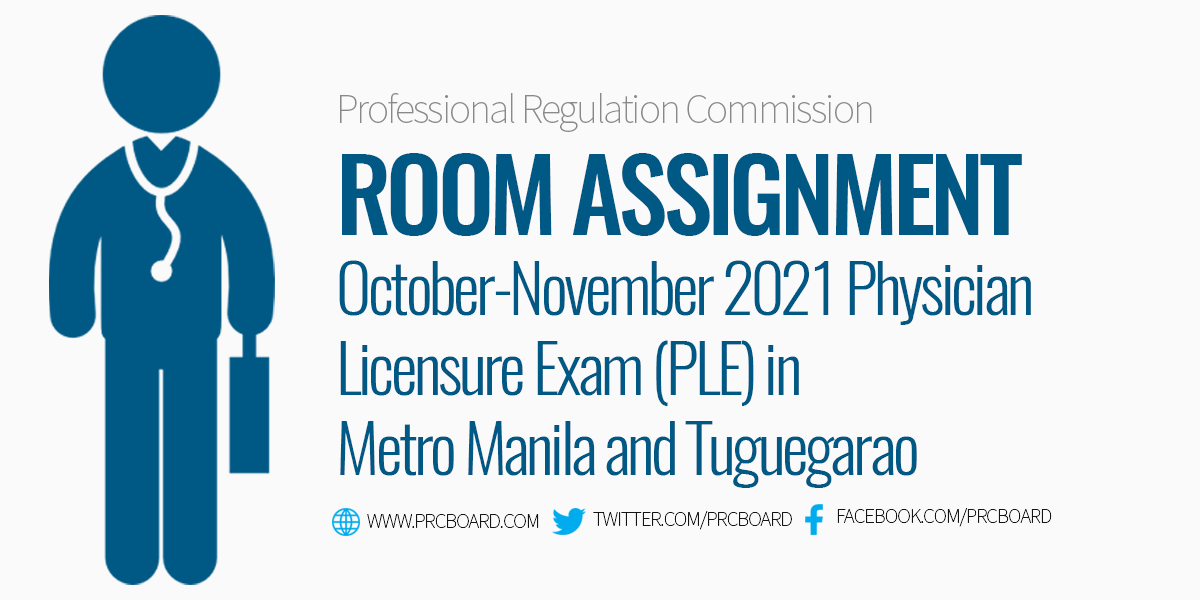

PRC Room Assignments for December 2021 Geodetic Engineers Licensure Examination
Manila, Philippines – The Professional Regulation Commission (PRC) has announced the room assignments for the December 22-23, 2021 Geodetic Engineers Licensure Examination for testing locations in Manila/National Capital Region (NCR), Baguio, Cebu, Davao, Legazpi, Pagadian, Tacloban, Tuguegarao, and Zamboanga.
The licensure exams for Geodetic Engineer were administered by PRC and the Board of Geodetic Engineering headed by its Chairman, Engr. Epifanio D. Lopez, and its members, Engr. Concordio D. Zuñiga and Engr. Randolf S. Vicente.
Here are the room assignments for the December 2021 Geodetic Engineer Board Exam, courtesy of PRC:
- Manila/ NCR
Geodetic Engineer Licensure Exam Schedule and Coverage
| Wednesday, December 22, 2021 | Subjects | PERCENTAGE |
|---|---|---|
| 7:00 AM – 7:45 AM | ||
| 8:00 AM – 10:00 AM | [Public Land Laws and Natural Resources, Laws on Property, Land Reform Laws, Land Registration Laws on Obligation and Contracts, Professional and Ethical Practice, Rules and Regulations Governing Land Surveying] | 20% |
| 11:00 AM – 2:00 PM | [Algebra, Solid Geometry, Analytical Geometry Engineering Economics, Plane and Spherical Trigonometry, Differential and Integral Calculus, Mechanics and Least Squares] | 20% |
| 3:00 PM – 6:00 PM | [Property Surveying, Isolated, Mineral, and Mining Surveys, Cadastral Land Surveying, Astronomy, Route Surveys, and Earthworks, Hydrographic and Topographic Surveying, Photogrammetry, Engineering Surveys, and Construction Surveying] | 20% |
| Thursday, December 23, 2021 | Subjects | PERCENTAGE |
|---|---|---|
| 8:00 AM – 12:00 NN | [Geodetic Surveying, Geodetic Astronomy. Geodetic Leveling, Geodetic Triangulation, Gravity Measurement, and Least Squares] | 20% |
| 1:00 PM – 4:00 PM | [Plotting and Mapping of Isolated, Mineral, Cadastral, Hydrographic, Photogrammetric Surveys, and Map Projection] | 20% |
| 100% |
Examination Attire
Male examinees are required to wear a white polo shirt with a collar (without any seal, logo, or mark) and decent pants or slacks.
For female examinees, white blouse or shirt with collar (without any seal, logo or mark), decent skirt or slacks, and pony-tailed long hair.
What to bring?
Don’t forget the following on examination day:
- Notice of Admission (NOA)
- Official Receipt
- Two (2) or more pencils (No. 1 or No. 2)
- Ball pens with BLACK ink only
- One (1) piece long brown envelope
- One (1) piece long transparent/plastic envelope (for keeping your valuables and other allowed items)
- Health forms
- Negative RT-PCR Test Results, if applicable, or Certificate of Quarantine
Examinees are not allowed to bring books, notes, or similar items in the examination room. Electronic gadgets such as Apple and Samsung products are not allowed either. Bags of any kind are also not allowed inside the examination premises.
Precautionary Measures
The following precautionary measures shall be observed during the conduct of the Geodetic Engineers Licensure Exam:
- Wearing of face mask and face shield
- Sanitizing using alcohol and hand-based sanitizers whenever necessary
- Physical Distancing of one (1) meter at all times
- Those with fever and cold are not allowed to take the exam
- Observe proper hygiene at all times
Contact PRC
Should you have concerns related to the conduct of the December 2021 Geodetic Engineers Licensure Exam, you may also reach the Professional Regulatory Commission at the following contact details:
PRC Licensure Exam Division: [email protected] / [email protected] Facebook: @professionalregulationcommission Twitter: @PRC_main
Do you have clarifications/ comments about the December 2021 Geodetic Engineers Licensure Exam? Please feel free to drop one below.
Leave a Reply Cancel reply
Your email address will not be published. Required fields are marked *
- Privacy Policy
All rights reserved 2021 @facts.com.ph
Jump to navigation
- Skip to Main Content
The iGovPhil Project officially adopts the Web Content Accessibility Guidelines (WCAG 2.0) as the accessibility standard for all its related web development and services. WCAG 2.0 is also an international standard, ISO 40500. This certifies it as a stable and referenceable technical standard.
WCAG 2.0 contains 12 guidelines organized under 4 principles: Perceivable, Operable, Understandable, and Robust (POUR for short). There are testable success criteria for each guideline. Compliance to these criteria is measured in three levels: A, AA, or AAA. A guide to understanding and implementing Web Content Accessibility Guidelines 2.0 is available at: https://www.w3.org/TR/UNDERSTANDING-WCAG20/
All iGovPhil Project services and content are currently moving towards WCAG Level A compliance. Work is being done to make the system fully compliant with this level.
- Chrome for Linux press (Alt+Shift+shortcut_key)
- Chrome for Windows press (Alt+shortcut_key)
- Chrome for MAC OS press (ctrl+opt+shortcut_key)
- Safari for MAC OS press (ctrl+opt+shortcut_key)
- For Firefox press (Alt+Shift+shortcut_key)
- For Internet Explorer press (Alt+Shift+shortcut_key) then press (enter)
- Home Page (Combination + H): Redirecting to homepage.
- Main Content (Combination + R): View the content section of the current page.
- FAQ (Combination + Q): FAQ page.
- Contact (Combination + C): Contact page or form inquiries.
- Feedback (Combination + K): Feedback page.
- Site Map (Combination + M): Site map (footer agency) section of the page.
- Search (Combination + S): Search page.
- Press ESC or CLICK the close the button to close this dialog box.

- News & Events
- Professional Regulatory Boards
- Procurement
- Transparency Seal
- About the Commission
- Vision / Mission
- Quality Policy & Quality Objectives
- PRC Officials
- Chairpersons and Commissioners Through the Years
- Organizational Chart
- Programs and Projects
- Online Application
- Overseas Applicants
- List of Requirements
- Examination Schedule
- Room Assignment
- Initial Registration
- Renewal of Professional Identification Card
- Issuance of Duplicate Professional Identification Card
- Verification of License
- Verification of Rating
- Certification of Passing and Board Rating
- ■ Application for Registration without Examination
- ■ Examination Result
- ■ Accreditation of Real Estate Salesperson
- ■ Accreditation of Medical Representative
- ■ Assessment of Annual Registration Fees
- ■ Certification / Authentication
- ■ Replacement Certificate of Registration (COR)
- ■ Petition for Correction of Entries / Data
- ■ Petition for Change of Status with or without Change in Registered Name Due to Marriage
- ■ Lists of Accreditation/ Registration/Compliance/Authority
- ■ Resolutions / Issuances
- ■ Downloadable Forms
- ■ ACD Activities
- Accredited Programs and Providers
- Operational Guidelines
- Operational Guidelines During the Transition Period
- PRC Position on CPD
- CPD Councils' Resolutions
- CPD Issuances and Memorandums
- Accreditation of Specialty Society/Organization and Other Specialty Categories Providing Structured Training Programs for Professionals
- Guidelines on Creation of a Career Progression and Specialization Program
- Guidelines on the Implementation of the Recognized Career Progression and Specialization Program
- Office Order No. 1254 (s.2023)
- Office Order No. 1225 (s.2022)
- GPB FY 2024
- GPB FY 2023
- GAD Accomplishments
- 2024 Mother's Day Celebration
- National Women's Month 2024
- National Women's Month 2023
- 18 Day Campaign to End VAW 2023
- Republic Act No. 11930
- Republic Act No. 11861
- Republic Act No. 11313
- Republic Act No. 11210
- DOLE GAD Agenda Video
- Online Application for Registration as ASEAN Chartered Professional Engineers (ACPE)
- APEC Architect
- APEC Engineers
- International Agreements
- STP Board Focal Person Resolutions
- Hawaii Department of Health (HDOH)
- Residency / Fellowship Training Forms
- Certificate of Ineligibility for Non-Filipino Citizens
- Former Filipino Professionals
- AQRF Referencing Report of the Philippines
- AQRF Website
- HSSWG Website
- ASEAN Healthcare Services
- PQF Website
- ** A Review of the PQF Towards Improved Skills Recognition and Mobility
- 2017 Outstanding Professionals of the Year Awardees
- 2018 Outstanding Professionals of the Year Awardees
- 2019 Outstanding Professionals of the Year Awardees
- 2020 Outstanding Professionals of the Year Awardees
- 2021 Outstanding Professionals of the Year Awardees
- 2022 Outstanding Professionals of the Year Awardees
- Vacant Positions
- Citizen's Charter
- Anti-Red Tape
- Dress Code Policy
- Central Office
- Regional Office
- Public Assistance
Search form

- PRC Online Portal
- Overseas Applicant

The Professional Regulation Commission (PRC) announces that 318 out of 1,454 passed the Certified Public Accountant Licensure Examination given by the Board of Accountancy in Manila and Rosales this December 2021.
The Board of Accountancy is composed of Noe G. Quiñanola , Chairman; Thelma S. Ciudadano , Vice Chairman; Gloria T. Baysa , Samuel B. Padilla , Arlyn Juanita S. Villanueva and Gervacio I. Piator , Members.
From February 2 to February 8, 2022, registration for the issuance of Professional Identification Card (ID) and Certificate of Registration will be done on-line. Please go to www.prc.gov.ph and follow instructions for initial registration. Those who will register are required to bring the following: downloaded duly accomplished Oath Form or Panunumpa ng Propesyonal, notice of admission (for identification only), 2 pieces passport sized pictures (colored with white background and complete name tag), 2 sets of documentary stamps and 1 piece short brown envelope. Successful examinees should personally register and sign in the Roster of Registered Professionals.
The date and venue for the oathtaking ceremony of the new successful examinees in the said examination WILL BE ANNOUNCED LATER.
- Full text of the Official Result
- Performance of Schools
- List of Successful Examinees
- Application with Examination
- Application without Examination
- Examination Result
- Online Request for Certification / Authentication
- I.D. Renewal
- Application for Registration w/o Examination
- Real Estate Salesperson
- Medical Representative
- Replacement Registration Certificate
- Stateboard Verification / Validation of Registration / License
- Certification / Authentication
- ASEAN Professionals
- Foreign Students
- Residency / Fellowship Training Program
- Professional (including judicial)
- Endorsement of SEC Registration
- Accreditation
- Inspection and Monitoring
- Special Prosecution
- Research and Opinion
- Rules on Administrative Proceedings
- Conciliation and Mediation
- RA 8981 (Modernization Act)
- Professional Regulatory Laws
- CPD Issuances

- Official Gazette
- Open Data Portal
- Office of the President
- Office of the Vice President
- Senate of the Philippines
- House of the Representative
- Supreme Court
- Court of Appeals
- Sandiganbayan

Amplification Among Allies: Russian and PRC Information Operations in Latin America
Posted on November 13, 2023

By Maria Isabel Puerta Riera
One year after Russia’s full-scale invasion of Ukraine and not long after the International Criminal Court’s (ICC) decision to issue Vladimir Putin’s arrest warrant, Xi Jinping paid a state visit to Moscow. While there, Beijing released a 12-point peace proposal supposedly to end the war in Ukraine, but this plan was met with broad skepticism . The document avoided using the terms “war” or “invasion.” It implicitly placed equal blame on victim and aggressor, making the proposed plan untenable for Ukraine, as well as the EU and its partners . Such actions—along with Russia’s ‘ new foreign policy concept ’ declaring its preeminent role in shaping the international relations system in their antagonism against Western values —illustrate these regimes’ hostility to democratic values.
Moscow and Beijing have developed a “no limits” strategic partnership to disseminate antidemocratic narratives across the globe and they have leveraged this partnership to great effect. In line with Russian and Chinese Communist Party (CCP) efforts to assert cyber sovereignty , this partnership comprises numerous information- and media-based activities that have formalized the two countries’ commitment to exchange and amplify each other’s state media narratives.
Over the past decade, Russia and the People’s Republic of China (PRC) have operated more forcefully in the global information space. Exploiting growing weakn esses in the independent media sector, Moscow and Beijing have leveraged a wide variety of digital platforms at their disposal. They have often concealed the nature of their official and unofficial local amplifiers of these regimes’ narratives, while introducing a benign narrative of their own through Russian and Chinese official outlets. In other cases, however, there are more forceful interventions, including meddling in Latin American domestic political issues as an opportunity to attack “the West.”
Both the Kremlin and the CCP increasingly wield sharp power and information and propaganda operations to shape narratives and meddle in domestic politics abroad, especially in democratic settings. Through such influence operations, they have challenged democratic institutions and sought to sow distrust within countries around the world. There are three principal ways by which the PRC and Russia are able to disseminate and amplify narratives effectively:
- Collaboration and convergence of their narratives;
- Expansion of operations and the cooptation of illiberal allies;
- Exploitation of local and regional vulnerabilities.
The influence the Kremlin and the CCP exercise is global, but it is especially evident in Latin America . Across the region, allied governments and media—wittingly and unwittingly—disseminate illiberal narratives that question the viability of democracy on a global scale. This strategy can be found in efforts at shaping global sentiment questioning the capacity of democracies to deliver by contrasting them to the benefits their authoritarian systems purportedly offer. The practice is also present through the close ties developed between these regimes and media outlets sharing a common goal in the framing of information. In addition, there are clearly identifiable patterns concerning the mechanisms of influence operations and the targets of such action. These narratives are designed to challenge and confront what many in Latin America view as renewed imperialism and colonialism .
The Convergence of PRC and Russian Information Operations
There is a long history of Russian influence operations around the world, yet the Kremlin’s full-scale invasion of Ukraine reveals the strategic value Moscow currently places on controlling global narratives. Backed increasingly by the CCP, the complex network of media outlets disseminating pro-Kremlin views of the invasion broadly influences its authoritarian allies and uninformed actors that unwittingly propagate Russian preferred narratives.
The dissemination of the Kremlin’s narratives is not a highly sophisticated operation, but rather entails a massive, globally coordinated effort that is directed by Russian leadership. Official social media accounts share false narratives and are later echoed by allies and associates, including those affiliated with the PRC. The narrative is critical, but so is the laundering and legitimizing process of the Kremlin’s allies to infuse falsehoods more broadly across the information environment through media outlets or influencers not explicitly identified as allies. PRC-backed efforts to perpetuate these narratives further amplify Moscow’s talking points, for instance, justifying the Russian military’s mobilization before its full invasion of Ukraine and ultimately censoring anti-war voices within China’s media landscape.
Meanwhile, PRC-backed actors have focused on controlling the narrative around the Party-State’s rise as a global power. Through state-controlled media and Beijing’s online propaganda machine, the CCP has emulated Russia’s information operations playbook, pivoting away from its use of soft power toward an approach that one institution called the “Russification of Chinese influence operations.” Beijing has used these tactics to influence regional media landscapes—the Taiwanese election in 2018 being a notable example. They also rely heavily on foreign media outlets and, like Russia, invest significant effort into shaping popular narratives in countries’ domestic information spaces.
Russia’s full-scale invasion of Ukraine has exposed the PRC’s role in legitimating the conflict. While alleging neutrality, its state-controlled media amplifies Russian propaganda about its invasion of Ukraine, avoiding expressions like ”war” and adopting euphemisms like ”special operation” or crisis instead.
Expanding Russian and PRC Information Operations to Support Authoritarian Models
Recently, Russian and PRC influence operations have expanded to non-authoritarian countries worldwide—especially in the Global South. Furthermore, Beijing has been able to take advantage of its privileged position as a primary economic partner among Global South countries to garner additional support for their preferred narratives.
Kremlin- and CCP-backed information operations also reinforce information warfare by framing these efforts as defensive in nature. Both Beijing and Moscow argue that “Western” democracies have used their media and information networks to spread democratic values while unfairly vilifying their preferred models of governance. Thus, the Kremlin and the CCP explain their efforts as justified in the defense of their regimes against what they call illegitimate democratic influence in the global information space.
Authoritarian actors’ narratives adjust depending on the target region, but there is a common imperative among them: to impose the counternarrative of a thriving, authoritarian model that the West has ignored in contrast to what they call the failures of democracy. Kremlin-friendly platforms share these messages with audiences worldwide, making inroads across Latin America , Africa , and beyond . The intention is not so much to uphold or promote Russian or Chinese regimes as better options, but to sow distrust in democratic governance models, creating sufficient confusion among those most frustrated with the poor performance of their governments and institutions.
Local and Regional Vulnerabilities
The effectiveness of these efforts depends on a range of systemic factors, including the openness of a country’s media environment, social and political polarization, and the resilience of democratic institutions. In countries with weak democratic institutions and polarized populations, authoritarian actors are more successful in undermining democratic practices.
In Latin America, the region’s “ calculated ambiguity ” (source material in Spanish) emphasizes the profound political influence of alternative narratives that these two illiberal forces push. The neutral stance some of these countries have adopted regarding the Ukrainian conflict is evidence of the impact of these forces, adopting the argument of the proxy nature of the conflict as an excuse for neutrality. Brazilian President Luis Inácio Lula da Silva’s recent comments after his trip to Asia accusing the U.S. of “encouraging the war” have further underscored Latin American implicit alignment with Russia and the PRC over the conflict.
Colombia’s president Gustavo Petro’s refusal to supply Russian-made military equipment to Ukraine and Mexico’s Andrés López Obrador insistence on a ” peace plan ” between Russia and Ukraine signal that economic and political interests—backed by Russian and CCP narratives in Latin America—have, in some cases, outweighed concerns over sovereignty and self-determination. This stance belies the region’s long-standing sensitivity to the historical legacies of colonialism and imperialism.
Alternative narratives like those mentioned above advance falsehoods and compromise potential democratic voices in Latin America. Support by some in Latin America of the false pretenses under which Russia invaded Ukraine has left global democracy more vulnerable than ever to malign information operations. Furthermore, the distrust these narratives sow in media and democratic institutions could cause irreparable damage in the absence of a more robust response.
It is vital to acknowledge these threats and educate audiences to be more aware of them. These efforts should include supporting media literacy programs in the long term and passing legislation protecting the information environment from authoritarian actors. The impact of authoritarian information operations on discourse, however, necessitates short-term measures involving socially-shared mechanisms that inform readers of media outlets’ credibility. In this sense, nongovernmental actors are critical in providing easy-to-use safety tips that can support users. The activities our institution ( GAPAC ) has organized that promote tools for civil society to better manage communication complexities represent one notable example of effective civic engagement. Through this initiative, citizens from local organizations learn how to identify malign information operations while receiving training on techniques that enhance civic participation capacities, with the support of infospace experts and other activists. While only a single effort, the expansion of such initiatives, as well as others, will be critical to effectively responding.
Russian and PRC partnership in the information realm has allowed the emergence of a powerful synergy with severe consequences in Latin America. In their efforts to reshape global narratives, the alliance is reaching an audience that is vulnerable due to the weak nature of its democracies. The effectiveness of practices designed to sow distrust in the values and principles of the region’s political systems seems to be paying off with the uneven reaction to conflicts like the War in Ukraine, among other examples. In the information era, it can be a tool for self-harm or protection if consumers know its power. Therefore, it is not surprising that Spanish-speaking Russian media has impacted the region’s information space. The lack of awareness about this trend highlights the need to be more aware of the threat these actors pose to Latin American political stability. We must educate audiences relentlessly and provide the instruments they need to detect and combat malign information operations and, ultimately, to protect their own democratic structures.
Maria Isabel Puerta Riera is a research fellow at GAPAC and an adjunct professor of political science at Valencia College. Follow her on Twitter: @Maripuerta .
The views expressed in this post represent the opinions and analysis of the author and do not necessarily reflect those of the National Endowment for Democracy or its staff. Image Credit: LukeOnTheRoad / Shutterstock .
Related posts

Can China Build A Great Firewall Around the Global Internet?
Posted on December 18, 2017
By Rachelle Faust

A Ray of Hope in the Haze: Disinformation and the Slovak Presidential Election
Posted on May 14, 2019

Misgoverning Online Speech: COVID-19, Cybersovereignty, and “Fake News” Laws
Posted on September 29, 2021

‘Conformation Bias’: Political Tribalism as a Driver of Disinformation
Posted on January 15, 2019

- All Articles
- Books & Reviews
- Anthologies
- Audio Content
- Author Directory
- This Day in History
- War in Ukraine
- Israeli-Palestinian Conflict
- Artificial Intelligence
- Climate Change
- Biden Administration
- Geopolitics
- Benjamin Netanyahu
- Vladimir Putin
- Volodymyr Zelensky
- Nationalism
- Authoritarianism
- Propaganda & Disinformation
- West Africa
- North Korea
- Middle East
- United States
- View All Regions

Article Types
- Capsule Reviews
- Review Essays
- Ask the Experts
- Reading Lists
- Newsletters
- Customer Service
- Frequently Asked Questions
- Subscriber Resources
- Group Subscriptions
- Gift a Subscription

Browse book reviews by:
- Magazine Issue

Assignment Moscow: Reporting on Russia From Lenin to Putin
Reviewed by maria lipman, by james rodgers.
Rodgers, a British journalist who has worked in Russia at various times since the 1990s, writes about the plight of the English-speaking correspondents who have covered Russia, going all the way back to the Russian Revolution in 1917. That their task was not easy is hardly surprising, yet Rodgers repeatedly emphasizes the difficulties they faced (the word “difficult” is used to describe their job at least two dozen times): strict censorship (foreign journalists were forced to clear their dispatches with Soviet authorities until 1961), travel restrictions, limited access to senior officials and ordinary people alike, and the government’s suspicion that Anglo-American correspondents were spies in disguise. Even Rodgers’s discussion of the American journalist Hedrick Smith—who, despite the restrictions, famously managed to produce exceptionally rich and insightful coverage of the Soviet Union and its people in the 1970s—is reduced to Smith’s reflections on how difficult his work was. Rodgers’s narrative rests on an enormous number of articles in Anglo-American media, books by and about journalists, and his own interviews with many Moscow correspondents. He quotes some of them as saying that journalists knew and understood Russia better than diplomats or policymakers did. This may or may not be true. Unfortunately, Rodgers doesn’t give the diplomats and policymakers a chance to respond.
- More By Maria Lipman
More from Eastern Europe and Former Soviet Republics

Nested Nationalism: Making and Unmaking Nations in the Soviet Caucasus
By krista a. goff, a short history of russia: from the pagans to putin, by mark galeotti, weak strongman: the limits of power in putin’s russia, by timothy frye.
ROOM ASSIGNMENTS: October-November 2021 Physician Licensure Exam (PLE), Medicine

PLE October November 2021 Room Assignment
MANILA, Philippines – The Professional Regulation Commission (PRC) board of Medicine released the list of room assignments for the October 2021 Physician Licensure Exam (PLE) few days before the exams.
The October 2021 Physician board exams are for the postponed September 2021 PLE in Metro Manila and Tuguegarao. The re-scheduled board exams will be held on October 30-31 and November 1-2, 2021.
The Board for Medicine is headed by its Chairman, Dr. Clarita C. Maaño and its members, Dr. Eleanor B. Almoro, Dr. Godofreda V. Dalmacion, Dr. Zenaida L. Antonio, Dr. Rafael R. Castillo and Dr. Raquel S. Sayo.
SEE ALSO: PLE RESULTS (September 2021 Physician Board Exam Passers)
Room Assignments for October 2021 Physician Board Exams
Examinees are advised to verify the room assignments to the links below or through the notices and announcements to be posted at the PRC official website. Here is the room assignments for the October 2021 Physician/ Medical Doctors licensure exams.
- Metro Manila
- Metro Manila (Added to the list)
- Metro Manila (PWD/Pregnant)
- Tuguegarao City
Examinees shall report before 6:00 in the morning on the said date because late comers will not be admitted.
Other Story
- How to Pass Licensure Exam? Tips from Board Passers
What to bring on the day of exams?
Here are the things to bring during the examination proper:
- Notice of Admission
- Official Receipt
- One (1) piece of metered-stamped window mailing envelope
- Two (2) or more pencils (NO. 2)
- Ball pens (black ink only)
- One (1) piece long brown envelope
- One (1) piece long transparent/plastic envelope (for keeping your valuables and other allowed items)
- Any licensed Physician (government or private physician)
- Municipal Health Officer, Provincial Health Officer or City Health Officer
- Barangay Officer visiting the examinee’s residence attesting that he/she has been in quarantine for 14 days;
- Informed Consent Form and Health Declaration Form
- Face mask preferably N95 and Face Shield (to be worn at all times)
- 70% ethyl alcohol for regular hand disinfection
- Pre-packed meal/snacks and drinks
PRC said that examinees shall submit the Post Examination Health Surveillance Form to the concerned Regional Office 14 days after the conduct of exams.
What if I failed to take the exams?
In the event that the examinee failed to take the exams due to below reasons, examinee will be allowed to take on the next schedule subject to the following requirements:
- Health Related Reasons: The examinee must submit a letter to the commission or respective board with notarized Medical Certificate as attachment
- Travel Restriction Reasons: The examinee must submit a letter to the commission or respective board with Official letter or restriction from the concerned LGU
What to wear on examination day?
Here are the specified dress codes from PRC:
- All examinees shall wear their school uniform.
What are not allowed during board exams?
- Books, notes, review materials, and other printed materials containing coded information or formulas
- Calculators which are programmable or with embedded functions especially CASIO FX991ES and CASIO FX-991ES plus
- Apple, Samsung and other smart watches, cellular phones, ear plugs, transmitters, portable computers, Bluetooth and other electronic devices which may be used for communication purposes;
- Bags of any kind
Board exams during the COVID-19 pandemic
The following precautionary health and safety guidelines shall be observed at all times during the conduct of the PRC licensure exams:
- Wearing of face mask and face shield. Examinees are also required to bring alcohol-based sanitizers.
- Examination personnel shall be provided with face mask, face shield and latex gloves.
- Observe physical distancing by maintaining 1-meter distance from one another.
- Body temperature will be checked using thermal scanner prior to entry at examination premises. Those with fever, colds or cough are not allowed to take the exams. Their payment will not be forfeited and can be used in the next licensure exam.
- Examinees are advised to bring their food as they will not be allowed to exit the examination room during break time and lunch time.
- Examinees shall sanitize before entering the examination room, after using the rest room and before distribution of test questionnaires.
PRC added that they will not be responsible of any lost personal belongings.
2021 Physician Licensure Exam Schedule
Shown below is the schedule of the 2021 PLE:
| Date of Exam | Testing Locations | Start of Application | Deadline of Application |
|---|---|---|---|
| NCR, Baguio, Cagayan de Oro,Cebu, Davao, Iloilo, Legaspi, Lucena, Tacloban, Tuguegarao and Zamboanga | December 7, 2020 | February 8, 2021 | |
| September 11, 12, 18, & 19 | Baguio, Cagayan de Oro,Cebu, Davao, Iloilo, Legaspi, Lucena, Tacloban and Zamboanga | June 11, 2021 | August 18, 2021 |
| October 30-31 and November 1-2, 2021 | Metro Manila, Tuguegarao City Cagayan | – | – |
- PRC Memorandum No. 68 series of 2020 issued on November 6, 2020 entitled “Updated standard guidelines on the strict health protocols to observe in the conduct of licensure examinations during the covid-19 pandemic.
- Program for Physician licensure exams for October 2021 from PRC
For those who want to clarify something, PRC advised to email them through the Licensure Exam Division at below contacts:
- [email protected]
To receive regular updates about October 2021 Physician board exam as well as other related announcements, we advise our visitors to bookmark this page, visit PRC official website, follow us at our social media pages via Facebook and Twitter or join the members discussions at our Facebook Group .
If you have comments/reactions about this article, feel free to share it at the comment section below.
Leave a Reply Cancel reply
Your email address will not be published. Required fields are marked *
- Privacy Policy
All rights reserved 2024 @PRCBoard.com

IMAGES
COMMENTS
MANILA, Philippines - The Professional Regulation Commission (PRC) Board of Accountancy releases the list of room assignments for the December 2021 Certified Public Accountant Licensure Exam (CPALE) few days before the exams.
Find out your room assignment for the upcoming PRC exams. Check the schedule, venue, and requirements for your profession.
MANILA, Philippines - The Professional Regulation Commission (PRC) Board of Physical and Occupational Therapy releases the list of room assignments for the December 2021 Physical Therapists and Occupational Therapists (PT-OT) Licensure Exams few days before the exams.
MANILA, Philippines - The Professional Regulation Commission (PRC) Board of Accountancy releases the list of room assignments for the December 2021 Certified Public Accountant Licensure Exam (CPALE) few days before the exams.
MANILA, Philippines - The Professional Regulation Commission (PRC) Board of Physical and Occupational Therapy releases the list of room assignments for the December 2021 Physical Therapists and Occupational Therapists (PT-OT) Licensure Exams few days before the exams.
Manila, Philippines - The Professional Regulation Commission (PRC) has announced the room assignments for the December 16-18, 2021 Certified Public Accountant Licensure Examination (CPALE) for testing locations in Manila/National Capital Region (NCR), Baguio, Cagayan de Oro, Cebu, Davao, Iloilo, Koronadal, Legaspi, Lucena, Pagadian, Pampanga, Rosales, Tacloban, Tuguegarao and Zamboanga. The ...
Manila, Philippines - The Professional Regulation Commission (PRC) has announced the room assignments for the December 12-14, 2021 Criminologist Licensure Exam for testing locations in National Capital Region (NCR)/ Metro Manila, Baguio, Bacolod, Bohol, Cagayan de Oro, Cebu, Davao, Iloilo, Koronadal, Legaspi, Lucena, Mati, Naga, Occidental Mindoro, Pagadian, Pampanga, Rosales, Tacloban ...
Manila, Philippines - The Professional Regulation Commission (PRC) has announced the room assignments for the December 22-23, 2021 Geodetic Engineers Licensure Examination for testing locations in Manila/National Capital Region (NCR), Baguio, Cebu, Davao, Legazpi, Pagadian, Tacloban, Tuguegarao, and Zamboanga.
MANILA, Philippines - The Professional Regulation Commission (PRC) Board of Criminology releases the list of room assignments for the December 2021 Criminologist Licensure Exam (CLE) few days before the exams.
The Professional Regulation Commission (PRC) announces that 318 out of 1,454 passed the Certified Public Accountant Licensure Examination given by the Board of Accountancy in Manila and Rosales this December 2021.
2021 Schedule of Examination Schedule of Examinations - Calendar Year 2021 Download: (Right click, select [Save link as]) 2021 Schedule of Licensure Examinations
Here you can find the 2024 list of room assignments for the board licensure exam conducted by the PRC and other Philippine government agencies.
MANILA, Philippines - The Professional Regulation Commission (PRC) Board of Criminology releases the list of room assignments for the December 2021 Criminologist Licensure Exam (CLE) few days before the exams.
MANILA, Philippines - The Professional Regulation Commission (PRC) Board of Accountancy releases the list of room assignments for the October 2021 Certified Public Accountant Licensure Exam (CPALE) few days before the exams.
2021-2025 to guide collaboration in this sphere. The PRC and Russia are founding members of the Cooperation Organization (SCO), an intergovernmental group mainly focused on security affairs.
MANILA, Philippines - The Professional Regulation Commission (PRC) Board of Geodetic Engineering releases the list of room assignments for the December 2021 Geodetic Engineer Licensure Exam (GELE) few days before the exams.
On February 4, 2022, Chinese President Xi Jinping hosted his Russian counterpart, Vladimir Putin, at the opening of the Olympic Games in Beijing. After talks, the two sides released a joint statement declaring that China and Russia's bilateral partnership was greater than a traditional alliance and that their friendship would know "no limits." Twenty days later, Russia invaded Ukraine ...
Learn how Russia and PRC collaborate on information operations in Latin America on Power 3.0.
LET Room Assignments June 2022. MANILA, Philippines - The Professional Regulation Commission (PRC) releases the June 2022 Licensure Exam for Teachers (LET) room assignments few weeks before the exams. The Licensure Exam for Teachers (LET) will be conducted on June 26, 2022 at PRC testing centers located at NCR, Baguio, Butuan, Cagayan de Oro ...
Reviewed by Maria Lipman. Rodgers, a British journalist who has worked in Russia at various times since the 1990s, writes about the plight of the English-speaking correspondents who have covered Russia, going all the way back to the Russian Revolution in 1917. That their task was not easy is hardly surprising, yet Rodgers repeatedly emphasizes ...
CRIMINOLOGY Room Assignments December 2021 Find here... See more of PRC Board on Facebook
MANILA, Philippines - The Professional Regulation Commission (PRC) Board of Civil Engineering releases the list of room assignments for the November 2021 Civil Engineer Licensure Exam few days before the exams.
MANILA, Philippines - The Professional Regulation Commission (PRC) board of Medicine released the list of room assignments for the October 2021 Physician Licensure Exam (PLE) few days before the exams.